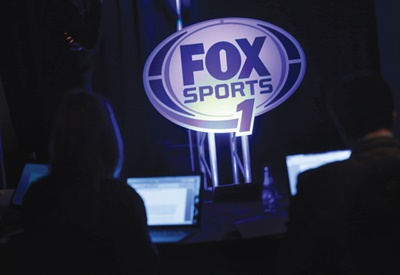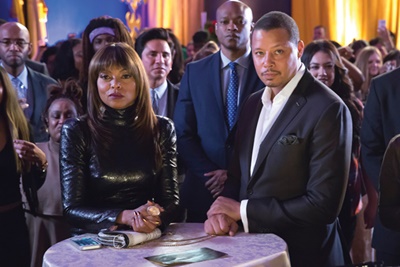Over the past decade, Fox Sports executives took pride in the fact that their parent company, 21st Century Fox, always seemed to be able to weather economic ills without resorting to mass layoffs.
When the advertising market cratered in 2008 and the company needed to cut costs, Fox Sports managers scrutinized travel budgets more closely. When the network’s NFL contract jumped to an average of $1.1 billion per year in 2014, it decided to keep open positions unfilled. As rival media companies like ESPN and Turner went through rounds of layoffs, Fox employees wore it as a badge of honor that they remained unaffected.
Those days are gone.
 |
Photo by: AP IMAGES
|
Today is the day some Fox employees have to decide whether to take a company-offered buyout or gamble that they will not be part of an ensuing round of layoffs that insiders say is inevitable. A month ago, 21st Century Fox offered voluntary buyouts to long-term and older employees as a way to cut costs. Staffers who have been at Fox for at least 15 years or are 55 years and older were offered one month’s pay for every year of employment.
 |
Fox Sports’ national channels, like Fox Sports 1, have not performed as well as promised, and the broadcast network’s prime-time lineup has struggled outside of the hit “Empire.”
Photo by: GETTY IMAGES
|
A Fox spokesman would not comment on the terms of the buyout.
Several published reports said the company is looking for up to $250 million in cuts, much of which would come from the buyouts. Employees who accept a buyout will remain employed through May 23. Employees who don’t accept the package will cross their fingers and hope that enough other people decide to leave voluntarily so that further cuts aren’t warranted.
Some long-term employees who met the buyout guidelines were deemed too critical to lose and not offered the buyout package.
Ultimately, insiders expect hundreds of positions to be eliminated across 21st Century Fox, either through buyouts or, eventually, layoffs. A Fox spokesman would not disclose how many employees work for either 21st Century Fox or Fox Sports.
Conversations with more than a dozen current and former Fox executives paint a picture of an office atmosphere that is unlike anything ever experienced at the company. In the month since the buyouts first were offered, idle conversations have been dominated with speculation of who will take the buyout and whether further layoffs are coming.
Executives were reluctant to speak on the record about such a delicate topic as their colleagues’ job security. But these conversations described a corporate workforce on edge as it prepares for bad news followed by leaner departments.
Employees say it’s strange to be working next to people who may not be around in a few months. That’s especially true at Fox Sports, which already has started planning for signature events like this fall’s World Series, next year’s Super Bowl and the 2018 World Cup.
It’s not known how many of the buyouts or cuts will come from Fox Sports, in particular, but the cuts are certain to affect well-known, longtime and well-liked employees across most departments. For example, Sports Illustrated reported last week that Fox Sports’ Rick Jaffe, senior vice president of news, is leaving. Sources said he took the buyout.
“Fox just got too fat and too bloated,” one former executive said. “It’s time for them to re-evaluate and adapt to the media business of 2016.”
Unlike ESPN, which laid off around 300 employees in October to save costs, Fox’s issues go well beyond its sports business. Fox’s movie studio has underperformed. Case in point is the disappointing “Fantastic Four,” which the Hollywood trades are speculating could lead to a $60 million write-off.
TV advertising has slowed as the broadcast network’s prime-time lineup has struggled, as well, outside of its breakout hit “Empire.” While a source said Fox has been doing well in the scatter market — the term for ads sold outside of the upfront selling season — it’s undeniable that the broadcast network’s prime-time schedule has been soft for years; it’s one of the reasons entertainment Chairman Kevin Reilly left the network in 2014. Prime-time problems negatively affect both advertising and syndication revenue.
Several sources point out that ESPN accounts for much more of Disney’s overall revenue than Fox Sports does with 21st Century Fox. Still, Fox is feeling the same pinch that is affecting other sports media companies, dealing with the combination of higher rights fees and cable industry contraction.
Fox’s rights fees have skyrocketed over the past three years as the group’s leadership team of Randy Freer and Eric Shanks amassed a portfolio of live rights for its two national sports channels and broadcast network. In 2014, it started a nine-year NFL deal that costs $9.9 billion and an eight-year, $4.2 billion deal with Major League Baseball. The following year, it began a 10-year, $3.8 billion deal for NASCAR and a 12-year, $1.1 billion deal with the U.S. Golf Association.
Perhaps then it was no surprise that earlier this year, Fox Sports put in only a token offer for the NFL’s “Thursday Night Football” package (an offer of between $200 million and $300 million for an eight-game package, sources said).
At the same time, Fox Sports’ national channels have not performed as well as promised. While 21st Century Fox executives remain committed to the 2 1/2-year-old Fox Sports 1 and Fox Sports 2, their launches have not gone as smoothly as planned. FS1 has lost more than 5 million homes since its August 2013 launch, although it lost most of those homes in the initial year after its launch. According to Nielsen, the channel was in 89.18 million homes at launch; it’s now in 84.166 million homes. FS2 added more than 13 million homes during that same time period, but executives expected to see even bigger growth. It currently is in 50.801 million homes.
According to SNL Kagan, distributors pay Fox a license fee of 98 cents per subscriber per month for FS1 and 28 cents per subscriber per month for FS2. By comparison, ESPN brings in $6.64 per subscriber per month and ESPN2 83 cents.
“Fox is not immune to cord shaving,” one former Fox executive said. “They are in the same situation as ESPN.”
Outside of its big live events, FS1’s TV ratings have been smaller than expected, and that’s eaten into the channel’s advertising revenue. The channel’s studio shows, in particular, have struggled. It canceled several of its signature shows, like “Crowd Goes Wild” and “America’s Pregame,” and hired Jamie Horowitz as president of Fox Sports National Networks, to breathe new life into the afternoon slate.
Horowitz lured high-priced on-air talent like Colin Cowherd and Jason Whitlock to the West Coast, showing that 21st Century Fox’s cost cutting is not necessarily across the board. But the cost cutting has affected some on-air programming. Fox Sports occasionally has announcers call some smaller college basketball games remotely, and it pared back its “Fox Sports Live” studio set earlier this month.
The cost cutting will continue, with the biggest focus on who takes the buyouts starting this week.





